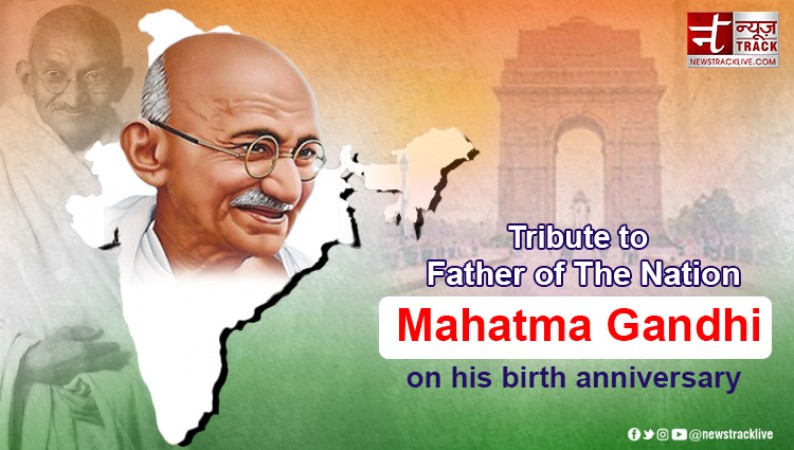
Once, a little girl saw an old man walking through the street. He was very lean, baldheaded and had worn only a dhoti. The Old man had no shirt. The mischievous little girl shouted “Shame, Shame”. The old man stopped walking. He looked at the little girl and smiled lavishly. With a smile on his lips, the old man asked “Why did you shout at me ‘shame’, my child”? The girl replied. “Why don’t you wear a shirt, granddaddy? That is why I shouted shame. The old man replied. “I don’t have a shirt, my child”.
The girl felt sad about the old man and told him: “Granddaddy I shall buy a shirt for you; there is some money in my little box”. Looking at the innocence of the little girl, he said. “No my child, I don’t want to wear a shirt. In our country there are large numbers of poor people who don't even have money to buy a shirt. I shall wear a shirt only when all people in the country are in a position to buy shirts”. The girl was stunned and asked the man. ‘Who are you granddaddy!’? And he replied “I am Gandhiji”.
Gandhiji taught others by the example of his personal life. The western educated lawyer, Gandhiji was never western in dress and food habits, but he was half-naked, wearing only a single white dhoti and a shawl and very simple foot wears. Simple living and high thinking characterized the life of Mahatma Gandhi.
Mahatma Gandhi became the father of the Indian nation because of his leadership to the non-violent struggle for India’s freedom. He fought violence with non-violence. His birthday is celebrated all over India on 2nd October. This day is also celebrated as a ‘Dry Day’, which means abstinence from alcohol. It would be worthwhile to remember the words of Mahatma Gandhi in this context, “I would rather have India reduced to a state of pauperism than have thousands of drunkards in our midst.” Gandhiji wanted freedom from alcohol for his people.
Gandhiji’s life was based on love, non-violence and truth. He was very much influenced by the teachings of Jesus Christ, Lord Buddha and Guru Nanak who had changed the course of human history through their teachings. He imbibed the principle of love and sacrifice from the life of Jesus Christ. Similarly, he adopted Karma Yoga from Gita. He firmly believed in the existence of God. He stressed the oneness of all religions in the midst of diversities. He sacrificed his life on the altar of communal harmony and human brotherhood.
Relevance of Mahatma Gandhi's emphasis on Gram Swaraj has highly valued during the past 3 years of Covid-19 pandemic. He used to say that India's soul lives in its villages, and he wanted a development strategy focusing on integral development of villages. He considered villages to be the basic units of social organization. Hence they should be self-sufficient in many respects. Mahatma Gandhi always emphasized the significance of cleanliness or sanitation. It was during the Covid-19 period that Gandhiji’s one of the favorite words “Sanitation” went ‘viral’ whereby citizen became aware of its significance. Yes, Gandhiji had once said, “SANITATION IS MORE IMPORTANT THAN INDEPENDENCE”. Along with external cleanliness Gandhij emphasized the need for cleansing one’s own self. He spent his whole life in the act of cleansing his 'self' by following the path of truth, non-violence and pluralism.
As a nation, we need to pay attention to the principles and values of Mahatma Gandhi to face various challenges. The world and India can benefit a lot by heeding to Mahatma Gandhi’s message and following his footsteps.